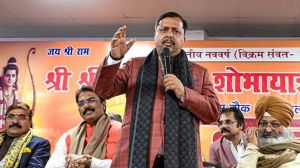A candle in the dark
It had to take the tragic murder of a promising IIT-trained engineer to prod us into grappling with a crucial, if completely overlooked, iss...

It had to take the tragic murder of a promising IIT-trained engineer to prod us into grappling with a crucial, if completely overlooked, issue. Come to think of it, securing the safety of the whistleblower should have long preoccupied a nation that has prided itself on its constitutionally guaranteed freedom of expression. After all, on this freedom of expression is premised the right to information, and the right to information would also necessarily entail the right of whistleblowers to confidentiality and assistance.
Whistleblowers are like umpires blowing the whistle when they perceive a foul being committed on the field. Only, in this case, the foul involves public institutions, the exposing of which the whistleblower believes is in the public interest. In fact, if legislation for whistleblowers had been envisaged when this country had debated, and passed, the freedom of information bill two years ago, Satyendra Dubey 8212; who had requested the PMO to address wrongdoing in the National Highway Authority of India 8212; may have been alive today. The setting up of a preliminary system 8212; after a long campaign conducted by this newspaper, and the active intervention of the Supreme Court 8212; to ensure that the whistleblowers of the future do not meet with Dubey8217;s fate, is therefore a progressive step that deserves to be lauded. It will in due course be followed by the putting into place of effective legislation 8212; a process that this newspaper looks forward to with great interest.
We live in an information society. Yet, ironically enough, we find ourselves largely in the dark about the various acts of fraud, deceit and profiteering that have brought this country the reputation of being one of the most corrupt in the world. To clean up the mess would need the sunlight of information to stream in, and men and women who are driven by their sense of professional ethics and commitment to the public good to speak out. It demands a great deal for an insider to come out with the truth, let us have no doubt about this. The dissenter can quickly get isolated, pressurised and punished. They could lose their jobs, their reputations and even their lives. So difficult is it to blow that whistle that most people 8212; when confronted with wrongdoing 8212; would rather keep their counsel. They end up condoning that wrongdoing by their silence but they believe they have no choice. We will be providing a choice to that potential agent of change if we can ensure, through systems and laws, that the act of speaking out is encouraged by a mandated secrecy and the recognition that the whistleblower is the unsung hero of our times.
- 01
- 02
- 03
- 04
- 05































